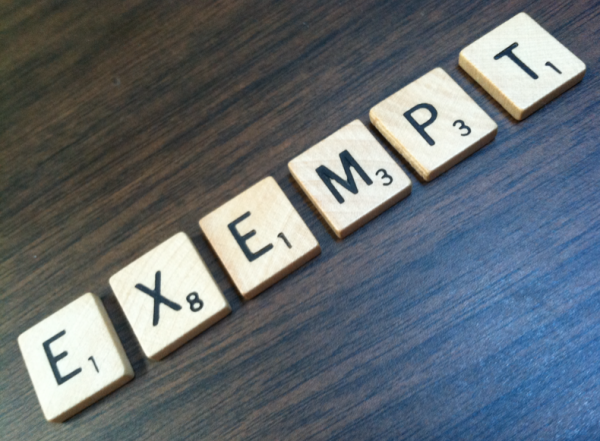Sales Tax
Which Sales Tax Exemption Forms Should Businesses Accept?
Exemption certificates are your protection in a tax audit. But the wrong forms won’t protect you.
Jul. 31, 2014

Exemption certificates are your protection in a tax audit. But the wrong forms won’t protect you.
An invalid certificate can make your company liable for the uncollected sales tax. So, how can companies that sell in multiple states guarantee they get the forms they need to prove the validity of their tax-exempt sales? What makes a good Texas tax exempt form or a good Pennsylvania or Michigan tax exempt form, and are they different from each other?
To help answer these questions, we’ve got 3 rules for you from the Exemption Certificate Survival Guide.
Rule 1: Accept no substitutes
Some businesses wonder if they can accept other kinds of documentation for tax-exempt sales. For instance, we’ve been asked before if a seller’s permit can be used instead of a state exemption certificate.
As a general rule, the answer is no.
Best practice is to accept only official state exemption certificates – see a full list here. (Of course there are always exceptions; in Mississippi a seller’s permit can act as a resale certificate.)
Rule 2: Understand multi-jurisdiction certificates
Multi-jurisdiction can save time for businesses making tax-exempt purchases in multiple states, since they often eliminate the need to issue dozens of certificates to a single vendor. Popular examples of multi-jurisdiction certificates include the Uniform Sales & Use Tax Certificate—Multijurisdictional and the Streamlined Sales Tax Multi-state Certificate. While these forms offer convenience to buyers, sellers should beware that many exceptions apply. For example, a multi-jurisdiction certificate may not apply to specific exemptions, like agricultural exemptions, or it may not work in jurisdictions where the buyer is not registered.
Make sure to do your homework to understand when you can safely accept multi-jurisdiction certificates.
Rule 3: Collect complete certificates
Ensuring you collect the right forms is a great first step, but the right forms still need the right information. Many businesses get into trouble when they accept exemption certificates with incomplete or missing information (or if they neglect to update expired certificates).
From the Exemption Certificate Survival Guide:
“Common exemption certificate errors [include]:
- Missing signatures or signatures from unapproved signers
- Missing issue dates
- Includes name or address other than the direct buyer and seller”
In other words, tax forms require many important pieces of information, and if those pieces are incorrect or missing, then the consequences can be the same as accepting the wrong form: your business could be on the hook for the uncollected sales tax. You could owe a hefty sum if you don’t have a process in place for ensuring your certificates are accurate and complete.
—————-
Will Frei covers sales tax news including best practices, legislation and sales tax technology. He is the Social Media Manager at Avalara. This article first appeared on the Avalara blog.
